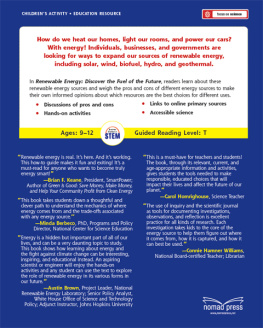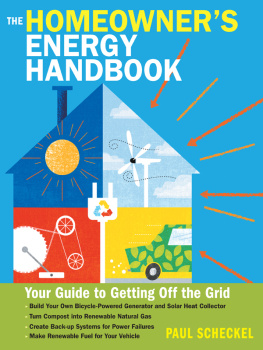Greasy Rider
Two dudes, One Fry-Oil-Powered Car, and a Cross-Country Search for a Greener Future
Greg Melville

Algonquin Books of Chapel Hill
Published by
Algonquin Books of Chapel Hill
Post Office Box 2225
Chapel Hill, North Carolina 27515-2225
a division of
Workman Publishing
225 Varick Street
New York, New York 10014
2008 by Greg Melville. All rights reserved.
The names and details of some people in this book have been changed to protect their privacy.
 Text printed on recycled stock with 30% post-consumer content.
Text printed on recycled stock with 30% post-consumer content.
Library of Congress Cataloging-in-Publication Data is available.
E-book ISBN 978-1-56512-669-5
Once again to Ann Marie
Greasy Rider
Preparation
Grease on earth
I drive a 1985 Mercedes 300TD wagon. It runs on waste oil from restaurant deep-fat fryers. Like nearly all (of the many) kooky ideas that arise in my cozy Cape-style home near Burlington, Vermont, the one to convert a diesel car to burn grease came from my wife, Ann Marie. She is a devout saver of the earth. She feels guilty swatting a mosquito. She cleans and reuses Ziploc bags. She forces me to use organic toilet paper, which is far from cottony soft.
I began lobbying for a second car not long after she was accepted to medical school at the University of Vermont because our soon-to-be-crazier schedules would no longer allow us to get by on one vehicle. I want a pickup truck, I told her. A big, old one.
She shook her head. Why would you ever need a pickup truck? Having been married to her for seven years, I knew exactly what the question and her body language implied: (1) a pickup truck burns too much fossil fuel, so it wouldnt be cheap to drive or environmentally friendly, and (2) I, of all people, would have absolutely no use for one.
What do you mean? I asked in a defensive tone. I could totally use one. Id haul stuff. Id get compost for the garden. Id clear brush from the yard. Id... get a snow plow. I didnt really plan to get a snow plow. And we could borrow a friends pickup on the extremely rare occasion when we needed to haul something or clear brush. But I yearned to feel the power of a V-8 engine, revving at the slightest touch from my leaden foot. I dreamed of shifting into four-wheel drive, and crushing a Prius beneath my fat tires. My truck would be red, its chrome bumpers gleaming so brightly theyd blind passing motorists. I looked pleadingly into Ann Maries eyes, but her stony expression didnt soften.
She said we should buy a diesel and convert it to vegetable oil. There was an article in one of her green living magazines about someone who had done it. Youll be the only guy on the block with a veggie car, she argued. I didnt care. Youre always ranting about politics. Now you can walk the walk. All right, I was listening. Youll save a lot of money. Very good point. Then came the kicker. Dick Cheney will hate you for it. Done deal.
In many ways, Im the yang to her yin. I only take a stand on something when I think Im getting screwed, and to me, potentially paying five dollars per gallon at the pump and watching my hard-earned money get split between already-rich oil company executives and already-richer sheikhs is getting screwed. Burning used french-fry grease did seem intriguing. Restaurants usually pay to get it disposed of, so theyre happy to give it away for free, Ann Marie told me. Yes, free. As in, I wont have to pay for the fuel that goes into my car. While its true that I did have a slightly more than passing concern for the environment, I mostly saw a veggie-powered car as my chance to stick it to The Man.
Oils well
Converting a diesel car to run on vegetable oil is easier than people think. When Rudolf Diesel showed off his engine at the Pariss Exposition Universelle in 1900, he ran it on peanut oil. His plan was to enable European farmers and drivers to generate their own fuel, easing their dependence on the massive energy companies of the time. Sound familiar? Today, diesel engines can still run on peanut oil. And on soybean, canola, and cottonseed oil, or even a bottle of Wesson from the grocery store shelf. (Yes, Ive done it, just to brag that I can.) Yet diesel-powered cars and trucks almost exclusively burn petro-diesel because putting fossil fuels into the pump at the corner gas station is still cheaper than planting soybeans or canolas or whatever and then watering, fertilizing, harvesting, and extracting the oil from them. The price gap between the two is narrowing significantly, though, as fuel prices keep climbing.
After researching old diesels, Ann Marie and I agreed upon getting a 1980s-vintage Mercedes wagon. We needed a big family car to fit our four-year-old daughter, Greer, and three-year-old son, Kai, and all of the junk that inevitably goes in tow with two young kids. Not to mention, old Benzes are known for their brawny engines and low asking prices. After two months of tracking leads, we found one about an hour south of us. A twenty-three-year-old named Ashley, who worked as a chair-lift operator at a ski resort, was selling it because she needed a four-wheel drive for mountain roads or at least thats what she said on the phone.
A day and a half later, on a sun-bleached October morning, Ann Marie and I pulled up Ashleys long, rutted dirt driveway, checkbook in hand. I tell my kids that when I spotted the old Mercedes, it was love at first sight and Im not the kind to get gooey over a car. It sat there, at the top of the driveway, its skin gleaming. I peeked through the windshield and the faded pleather seats beckoned me, seductively: Come on, big boy, set here a while, they seemed to say. Let my old springs give your lower lumbar the kind of support you know you want. Im cheap and ready.
I barely listened to Ashley give her brief history of the car before she handed me the keys. I turned the ignition and the engine chugga-chugged like a dream, as only a diesel can. The steering seemed a little loose but nothing to get concerned about and the brakes squeaked, but they still slowed the wagon adequately if I gave the pedal a firm push. I hand-cranked open the sun roof and cranked up the stereo while my wife and I took a quick spin down a bumpy farm road. The bluegrass sounds of Bela Fleck blared through the three working speakers. Sold!
We made an offer for forty-three hundred dollars a cool five hundred below the advertised price. Ashley accepted without hesitation. I almost felt guilty, as if I had overmatched her with my shrewd haggling skills. After all, I thought, she hadnt even owned it long enough to get a Vermont inspection, and she was already unloading it for a couple grand less than other old Benz wagons were selling for on eBay.
Those pangs of guilt vanished after the first big rainstorm, when water gushed inside the car through hidden leaks, filling the footwells like fishbowls. Weeks of Internet research on Mercedes discussion boards finally led me to a solution. Some tiny drain holes deep within in the engine compartment were clogged with pine needles. Then came the Vermont state inspection. Or, to put it more accurately, the failed state inspection. The mechanic told me that in order for the car to pass, I needed to replace the rusted floorboards beneath the backseat. And the brake rotors. And while I was at it, I should do something about those troubling rust holes on the doors that were on the verge of metastasizing.
It was around this time that I began to notice pools of oil forming on my driveway. If I were mechanically inclined, this is the point where Id modestly describe all of the amazing work I did on my wagon in my impressive tool-filled garage, where I not only tinker with cars but also craft exquisite wooden home furnishings in my free time. But Ive never been mistaken for a mechanic, my garage isnt tool-filled, and most of my wooden furnishings have an IKEA label on them.


















 Text printed on recycled stock with 30% post-consumer content.
Text printed on recycled stock with 30% post-consumer content.